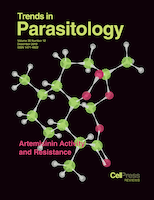
TRENDS IN PARASITOLOGY
Scope & Guideline
Unveiling the complexities of host-parasite interactions.
Introduction
Aims and Scopes
- Host-parasite interactions:
This area explores the complex relationships between hosts and their parasites, including mechanisms of infection, immune response, and co-evolutionary dynamics. - Molecular and cellular biology of parasites:
Research focuses on the genetic, biochemical, and cellular processes that underpin parasite biology, including mechanisms of virulence and resistance to treatments. - Epidemiology and control strategies:
The journal publishes studies on the epidemiological aspects of parasitic diseases, including transmission dynamics, risk factors, and innovative control measures such as vaccines and therapeutics. - Vector biology and ecology:
This area emphasizes the role of vectors in the transmission of parasitic diseases, examining vector-host interactions, population dynamics, and the impact of environmental changes. - Technological advancements in parasitology:
The journal highlights the use of new technologies, such as genomics and imaging techniques, to advance research in parasitology and improve diagnostic and therapeutic strategies.
Trending and Emerging
- Genomic and transcriptomic analyses:
There is a growing trend towards using genomic and transcriptomic tools to understand parasite biology, evolution, and interactions with hosts, facilitating the discovery of new drug targets. - Microbiome interactions:
Research into the role of microbiomes in modulating host-parasite interactions is gaining momentum, revealing insights into how microbiota can influence susceptibility to parasitic infections. - One Health approach:
The integration of human, animal, and environmental health perspectives is increasingly emphasized, addressing the interconnectedness of parasitic diseases and their broader ecological impacts. - Innovative vector control strategies:
Emerging technologies, including genetic engineering and environmentally friendly insecticides, are being explored as novel approaches to control disease vectors and mitigate transmission. - Translational research and public health:
There is a heightened focus on translating basic research findings into public health strategies, emphasizing the importance of community engagement and policy development in combating parasitic diseases.
Declining or Waning
- Traditional anthelmintics:
Research on conventional anthelmintic drugs has decreased as the field shifts towards exploring novel therapeutic strategies, including combination therapies and drug repurposing. - Basic taxonomy of parasites:
While taxonomy remains important, there has been a decline in papers focusing solely on the classification of parasites, with more emphasis placed on functional and ecological aspects. - Laboratory-based parasitology:
The focus on laboratory models for studying parasite biology is waning as researchers increasingly prioritize field studies and ecological approaches to understand parasites in natural settings. - Host immune evasion mechanisms:
Although still relevant, research specifically dedicated to host immune evasion strategies has seen a decline as newer themes, such as the role of the microbiome, gain traction. - Single species studies:
There is a noticeable shift away from studies focusing on single parasite species towards a more integrative approach that considers multi-species interactions and ecosystem dynamics.
Similar Journals
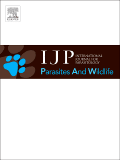
International Journal for Parasitology-Parasites and Wildlife
Exploring the Interplay Between Wildlife and ParasitologyThe International Journal for Parasitology-Parasites and Wildlife, published by ELSEVIER, is a premier open-access journal dedicated to advancing the field of parasitology and wildlife research. Established in 2012, this influential journal has garnered a reputation for excellence, as evidenced by its impressive rankings, including Q1 in Animal Science and Zoology and Q2 in both Infectious Diseases and Parasitology as of 2023. With an ISSN of 2213-2244, this journal serves as a critical platform for researchers, professionals, and students, fostering a deeper understanding of parasite-host interactions and their ecological impacts. The journal encourages innovative studies that contribute to the mitigation of infectious diseases and enhance wildlife conservation efforts. With a commitment to open access, the International Journal for Parasitology-Parasites and Wildlife ensures that cutting-edge research is easily accessible to the global scientific community, helping to bridge gaps in knowledge and stimulate further inquiry.

FOLIA PARASITOLOGICA
Bridging Knowledge and Innovation in Parasitology.FOLIA PARASITOLOGICA is a distinguished scholarly journal published in the Czech Republic, focusing on the field of parasitology. With a commitment to advancing knowledge in parasitology, the journal covers a wide array of topics including the biology and control of parasites, host-parasite interactions, and epidemiology. Having been in circulation since 1971 and currently converging its years of research until 2024, FOLIA PARASITOLOGICA has established itself as a vital resource for researchers, professionals, and students in immunology and microbiology, currently ranked in the Q3 category for Parasitology. Although it does not operate under an open-access model, the journal's relevance is underscored by its Scopus ranking, where it is positioned 47th out of 79 in the field, reflecting the high standards of research it publishes. By hosting a range of studies and reviews, FOLIA PARASITOLOGICA continues to contribute significantly to the scientific community, fostering advancements that enhance our understanding and management of parasitic diseases.
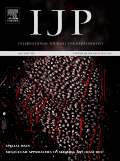
INTERNATIONAL JOURNAL FOR PARASITOLOGY
Exploring Innovations in Parasitology and Human HealthInternational Journal for Parasitology, published by Elsevier Sci Ltd, stands as a premier platform for disseminating groundbreaking research in the fields of parasitology and infectious diseases. With an impressive impact factor represented by its Q1 quartile rankings in both Infectious Diseases and Parasitology for 2023, this journal commands significant attention within the scientific community. Operating since 1971, it has profoundly contributed to the understanding of parasitic infections and their implications for human health, occupying a distinguished position ranked #7 out of 79 in Parasitology and #64 out of 344 in Infectious Diseases according to Scopus metrics. Although the journal currently does not offer open access options, it ensures rigorous peer review and unparalleled academic integrity, providing researchers, professionals, and students with critical insights necessary for advancing knowledge and fostering innovations in parasitology. Together with its rich historical foundation and commitment to excellence, the journal is indispensable for anyone delving into the complexities of parasites and their impact on both host and ecosystem.
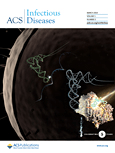
ACS Infectious Diseases
Pioneering Insights for Public Health ExcellenceACS Infectious Diseases is a premier journal in the field of infectious diseases, published by the American Chemical Society. With an impressive Impact Factor that places it in the Q1 category for Infectious Diseases in 2023, the journal serves as an essential resource for researchers, healthcare professionals, and students dedicated to the study of infectious agents and their impact on public health. Established in 2015, the journal is committed to publishing cutting-edge research that enhances our understanding of infectious diseases and fosters the development of innovative interventions. Although not an open access journal, it provides a platform for high-quality research that influences policies and practices in the field. With an address located at 1155 16TH ST, NW, WASHINGTON, DC 20036, ACS Infectious Diseases is an authoritative voice in advancing the science and practice of infectious disease management.
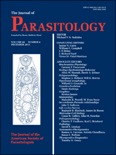
JOURNAL OF PARASITOLOGY
Pioneering Insights into Parasitic Diseases and EcologyJOURNAL OF PARASITOLOGY is a leading scholarly publication dedicated to the field of parasitology, published by ALLEN PRESS INC. With an impactful history spanning from 1945 to 2024, this journal serves as a vital resource for researchers, professionals, and students interested in the complex interactions between parasites and their hosts. Operating from its base in the United States, this journal holds a Scopus quartile ranking of Q3 in Ecology, Evolution, Behavior and Systematics, Medicine (Miscellaneous), and Parasitology, providing a solid reflection of its impact within these categories. While currently not offering Open Access, the JOURNAL OF PARASITOLOGY continues to encourage the dissemination of pivotal research findings that contribute to our understanding of parasitic diseases and ecological systems, positioning it as an indispensable tool for knowledge advancement in the life sciences.

ACTA PARASITOLOGICA
Fostering Discoveries in Parasitic DiseasesACTA PARASITOLOGICA, published by SPRINGER INT PUBL AG, stands as a pivotal journal within the field of Parasitology, boasting an ISSN of 1230-2821 and an E-ISSN of 1896-1851. Based in Germany, it has been providing valuable insights and research contributions since its inception, with publishing years converging from 1992 to 1994 and consistently from 1996 to 2024. The journal is recognized in the 2023 Category Quartiles as Q3 in Parasitology, indicating its significant impact and growing influence in the discipline, reflected in its Rank #43/79 in the Scopus Ranks for Immunology and Microbiology (Parasitology). Although not currently available in an Open Access format, ACTA PARASITOLOGICA remains a critical resource for researchers, professionals, and students alike, serving as a platform for the latest developments, methodologies, and discoveries in parasitic research. Its ongoing commitment to advancing the understanding of parasitic diseases and their impact on health and ecosystems underscores its importance in both academia and public health.
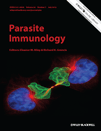
PARASITE IMMUNOLOGY
Fostering Collaboration in Immunology and Parasitology.PARASITE IMMUNOLOGY, published by Wiley, is a leading journal in the field of immunology and parasitology, with an ISSN of 0141-9838 and E-ISSN of 1365-3024. Since its inception in 1979, it has played a pivotal role in advancing our understanding of host-parasite interactions, immunological responses to parasitic infections, and the mechanisms of immunological resistance. The journal is adeptly positioned within the academic community, currently holding a prestigious Q2 ranking in Parasitology and a Q3 ranking in Immunology for 2023, indicating its significant influence and relevance. Its comprehensive scope attracts a diverse readership, contributing to the discourse surrounding novel therapeutic approaches and emerging challenges in parasitic diseases. With a consistent convergence of research until 2024, PARASITE IMMUNOLOGY is an essential resource for researchers, professionals, and students seeking to deepen their knowledge and foster collaboration in these dynamic fields. Although it is not an open-access journal, the insights shared within its pages are invaluable for shaping future research trajectories.

Pathogens
Innovating Solutions for Tomorrow's Health ChallengesPathogens is a leading open-access journal published by MDPI since 2012, dedicated to advancing the understanding of infectious agents and their interactions with hosts in the fields of immunology, microbiology, and molecular biology. Based in Switzerland, this journal plays a crucial role in disseminating high-quality research that spans from fundamental studies of pathogen biology to the implications for global health and disease management. With a commendable impact factor and prestigious Q2 rankings across multiple categories—including Immunology and Microbiology—Pathogens ensures visibility and accessibility for groundbreaking findings. The journal embraces the ethos of open access, allowing researchers, professionals, and students to access critical research anytime, facilitating a collaborative and innovative academic environment. By bridging the gap between research and application, Pathogens is instrumental in shaping the future of infectious disease research and management.
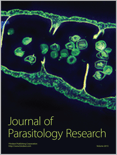
Journal of Parasitology Research
Empowering Global Research on Parasitic InfectionsJournal of Parasitology Research, published by HINDAWI LTD, is a pivotal open-access journal that has been disseminating groundbreaking research in the field of parasitology since 2009. With an ISSN of 2090-0023 and an E-ISSN of 2090-0031, this journal strives to provide researchers, professionals, and students with accessible and high-impact studies that advance understanding of parasitic diseases and their epidemiology. The journal currently holds a Q3 ranking in Infectious Diseases and a Q2 ranking in Parasitology, indicating its significant contribution to the academic community. Furthermore, with a Scopus ranking placing it at #39 in Parasitology and #186 in Infectious Diseases, it plays an essential role in shaping research directions in these fields. As an open-access journal, Journal of Parasitology Research enhances the visibility and accessibility of published works, ensuring crucial findings reach a global audience. With a focus on innovative research, the journal welcomes submissions that explore both theoretical frameworks and practical applications in parasitology, making it an invaluable resource for those dedicated to combating parasitic infections.

Parasite
Connecting researchers to elevate the study of parasites.Parasite is a distinguished open-access journal published by EDP Sciences S A based in France, specializing in the multifaceted field of parasitology and related disciplines. Since its inception in 1994, it has played a pivotal role in advancing research in Agricultural and Biological Sciences, Animal Science and Zoology, Infectious Diseases, Insect Science, and Veterinary Sciences, earning a prominent place in the academic community with its 2023 rankings placing it in the Q1 category for several key areas. With an impact factor reflective of its quality and engagement, the journal fosters a collaborative environment for researchers, professionals, and students to disseminate and access high-quality studies and reviews. Operating under an open-access policy since 2013, Parasite ensures that cutting-edge research is accessible to a global audience, thereby promoting knowledge sharing and innovation in the field. For more information, please visit the journal's homepage and explore its extensive repository of articles that contribute to the understanding of parasitic interactions and their implications in health and agriculture.